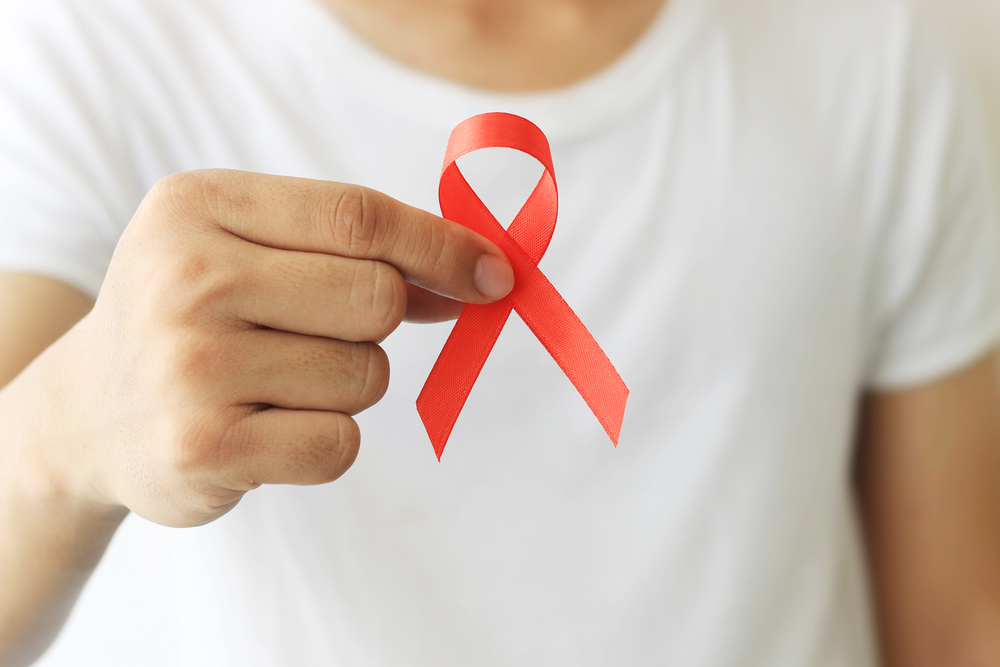Contents:
- Medical Video: Unprotected Sex Less Risky If HIV-Positive Partner On Antiretroviral Therapy
- The risk of HIV transmission is higher if you change partners
- Other things that make you at risk of contracting HIV
- How to prevent HIV transmission
Medical Video: Unprotected Sex Less Risky If HIV-Positive Partner On Antiretroviral Therapy
HIV is an infectious disease that attacks the immune system. HIV can drastically reduce the body's immune system, allowing diseases, bacteria, viruses and other infections to attack your body. HIV is transmitted by contact with infected blood, semen, and vaginal fluid from an infected person.
Generally a person will be more at risk of getting HIV if they often change partners. Why so? See the explanation in this article.
The risk of HIV transmission is higher if you change partners
The risk of contracting HIV will be greater if you have sex with multiple partners. This happens because you don't know whether your sex partner has been infected with HIV or not.
Because in many cases, someone who is infected with HIV in the initial phase does not cause significant symptoms. In fact, someone who is exposed to new HIV raises symptoms of the disease several years after being infected.
Basically, anyone who has sex with someone who often changes partners has the potential to transmit the disease obtained from previous sex partners. So, the more often you change partners, the more you risk getting HIV. Not only HIV, you will also be at greater risk of other sexually transmitted diseases that are more dangerous.
Other things that make you at risk of contracting HIV
In addition to often changing partners, you will also be more at risk of getting HIV if:
- Blood, breast milk, semen, or vaginal fluid, and infected milk are exposed to direct contact with wounds on the skin or open mucous membranes (for example, mouth, nose, vagina, rectum, and penis foreskin).
- Unprotected sex. The most important spread of the virus is by way of vaginal, anal, and oral sex without safety. In general, oral sex has a low chance of HIV transmission. But still, there are several factors that can increase this risk. One of them is having sexual intercourse by mouth when having an oral infection.
- Sharing syringes and other injection drug equipment that has been contaminated with HIV. Because the HIV virus can live in used syringes for up to 42 days depending on temperature and other factors.
- Mothers infected with HIV transmit the virus to babies before / during labor and when breastfeeding.
- Tattoo and equipment body piercing (including ink) that has been infected and is not properly sterilized.
- Receiving blood transfusions and organ / tissue transplants from people infected with HIV.
- Use sex toys (sex toys) which has been contaminated.
- Have other sexually transmitted diseases such as gonorrhea or chlamydia. Sexually transmitted diseases can weaken your body's natural protection so that it can increase your risk of being infected with HIV if you are exposed to the virus.
However, HIV will not spread through:
- Touch
- Shake hands
- Cuddle or kiss
- Various sheets and towels
- Various cutlery and toiletries
- Use the same swimming pool or toilet seat
- Animal bites, mosquitoes, or other insects
How to prevent HIV transmission
The only effective way to prevent HIV transmission is to avoid everything that can increase your risk of contracting HIV. This can be done by:
- Safe sex. If you do not know the HIV status of your sex partner, always use a condom during sexual intercourse. Condoms are the most effective form of protection against HIV and other sexually transmitted diseases. It is important for you to use a condom before making any sexual contact related to the penis, vagina, mouth, or anus.
- Selectively choose sex partners. Make sure if your partner is not infected with HIV before sexual intercourse. If necessary, get your partner to do a screening test to confirm the situation. Also ask for a history of your partner's sexual relationship, starting from the number of sexual partners and the type of security they use. What must be remembered, a person can be exposed to sexually transmitted diseases without realizing it.
- Not sharing needles. Syringes can increase your risk of being infected with HIV and other viruses in the blood, such as hepatitis C. If you want to make tattoos or piercings, make sure you do them in a professional place that has guaranteed safety. Don't forget, make sure if the needle used is sterile.
- Avoid direct contact with other people's blood or body fluids. You never know who has HIV, because in many cases, people don't know if they have been infected. That is why, avoid touching other people's blood if possible, and avoid contact with other body fluids that can spread HIV.
- Seek medical treatment immediately if you are pregnant. If you later become pregnant and are worried that you might have HIV, take a test and seek medical help immediately. Preventing the spread of HIV to your child is possible.












